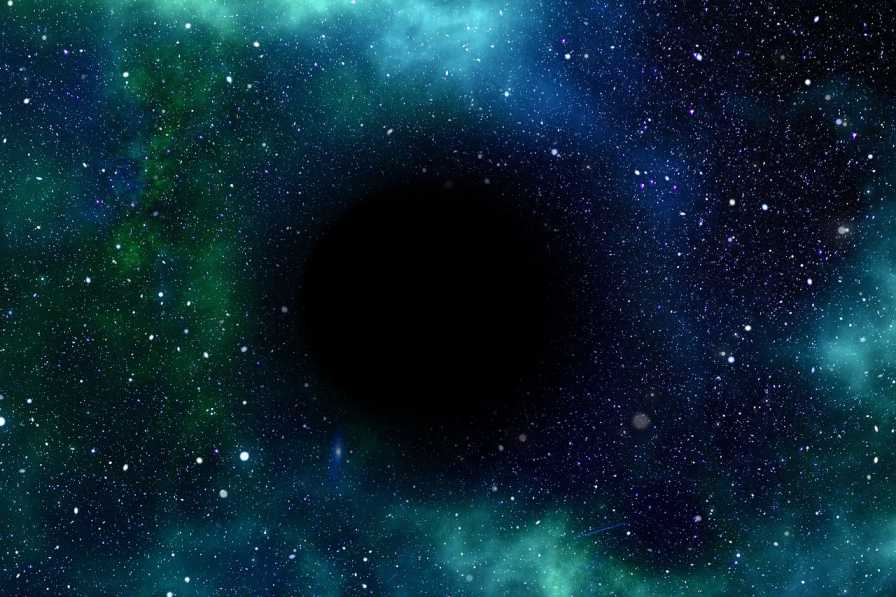
Because of their extreme gravity, black holes are notorious for consuming stars, planets, and even other black holes.
However, is it possible for a black hole to eat the cosmos piece by piece?
Simply put, no. According to NASA, a black hole is not capable of devouring the entire universe or even a single galaxy. This is why.
Formerly huge stars, black holes have collapsed back in on themselves to become so unbelievably dense that not even light can escape from them. According to University of Rhode Island black hole scientist Gaurav Khanna, the myth that black holes operate like vacuums, drawing space towards themselves, is the basis for the notion that they may devour the entire universe. That’s not the case, though.
Only very close objects are swallowed, according to Khanna. In actuality, black holes can only eat things that approach their event horizon, which is the point beyond which there is no escape.
For instance, a black hole with the mass of the sun would have an event horizon that was just 2 miles (3 kilometres) wide. The event horizon for a black hole with the mass of Earth would only be a few inches, or “the size of your thumb,” according to Khanna.
Even if a black hole doesn’t really swallow nearby stars and planets, its gravitational pull nevertheless has an effect on them and may even lead them to orbit the object, as the black hole at the centre of the Milky Way does.
Alexei Filippenko, a black hole scientist at the University of California, Berkeley, told Live Science that it’s also crucial to remember that black holes are rather small. He explained that the star must be practically squarely pointed at the black hole for there to be a good likelihood of it devouring it. This kind of cosmic bullseye can occur over time. However, he added, it would take a “truly ginormous amount of time” for the sun’s orbit to perfectly align with the black hole for the star to be sucked up by the black hole at the centre of the Milky Way.
Even the largest known black hole, TONNE 618, a cosmic giant said to weigh 40 billion solar masses, appears to be close to the theoretical maximum size for black holes. This limit results from the massive radiation emissions from huge black holes as they feed themselves on stuff. The surrounding material is heated and ionised by the radiation, which makes it more challenging for the gas and dust to cool and fall into the black hole and ultimately reduces the black hole’s feeding rate. Due to this internal control, black holes are kept from consuming entire galaxies, let alone the entire universe.
The universe’s accelerated expansion is another factor to take into account. According to Khanna, as things in space move apart, the likelihood that they will encounter a black hole and be swallowed by it decreases. It would take a massive change in the direction the universe appears to be heading if one black hole were to eat the entire universe.
So you may relax, at least in terms of massive, universe-eating black holes. For us, they are “nothing to worry about,” according to Khanna. Of certainly, unless the cosmos is already contained within a black hole.







